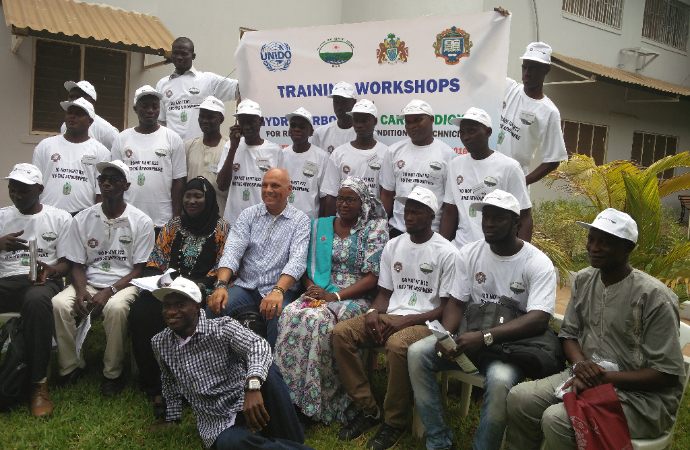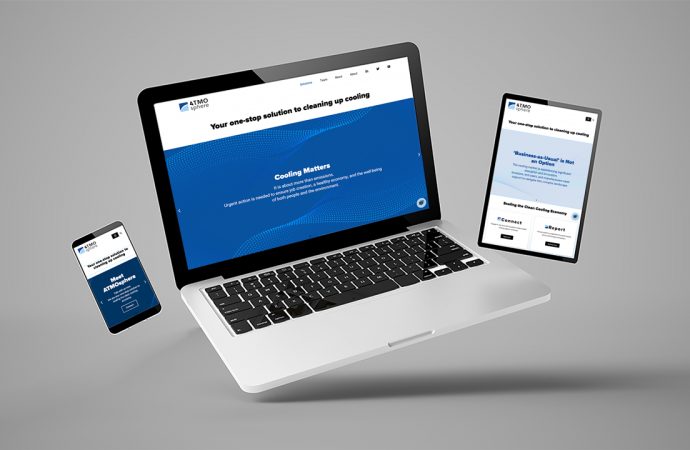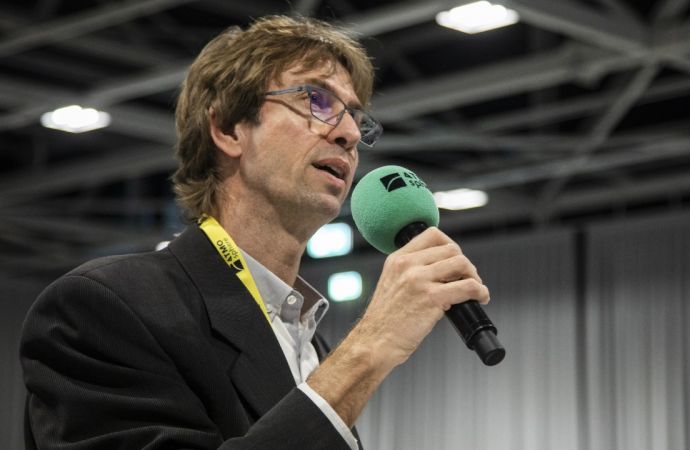A five-day training workshop of refrigeration trainers in the Gambia, held on 28 June-2 July, focused on technologies using natural refrigerants CO2 and hydrocarbons. The project aims to help the Gambia leapfrog high-GWP refrigerants and shift to natural refrigerants in the fisheries sector and other applications.

Funded by the Global Environment Facility (GEF) and supported by the United Nations Industrial Development Organisation (UNIDO), the Gambian government, the Gambian Technology Training Institute (GTTI), Centro Studi Galileo and shecco, the innovative project combines awareness-raising and training activities, technology transfer, and a legislative element to help the country transition to low-GWP refrigerants.
The fisheries sector is currently struggling with high-energy costs and out-dated refrigeration equipment with components that are difficult or too expensive to replace. Natural refrigerants would be able to assuage these issues while accelerating the transition from high-GWP refrigerants.
Workshop increases local knowledge of natural refrigerants
At the June workshop, twenty technicians from private and public institutions were selected to undergo a training course, conducted by Gianfranco Cattabriga, a trainer from Centro Studi Galileo. The objective was to familiarise technicians with safety requirements and equipment related to the use of natural refrigerants, hydrocarbons and CO2, so that they can transfer this knowledge to their peers and end users in the Gambia. Cattabriga stated “I consider this sort of activity extremely important and useful for the environment.”
I consider this sort of activity extremely important and useful for the environment.”
- Gianfranco Cattabriga, Centro Studi Galileo
Technicians got hands-on experience using the tools and equipment required to use natural refrigerants. They also received detailed explanations of the chemical and physical properties of natural refrigerant fluids in comparison to the traditional refrigerants (CFCs, HCFCs, HFCs) that are currently used in the Gambia.
The Natural Voice #2 focuses on developing countries
The second edition of the Natural Voice magazine spotlights numerous success stories from the developing world, including this project in the Gambia. Developing countries have the unique opportunity to leapfrog the use of HFCs as they phase down HCFC use. The magazine highlights many of these countries that are already training technicians to handle natural refrigerants in an effort to smoothly make the technology transition while skipping HFC use.
Please find the Natural Voice magazine here.
Related stories



